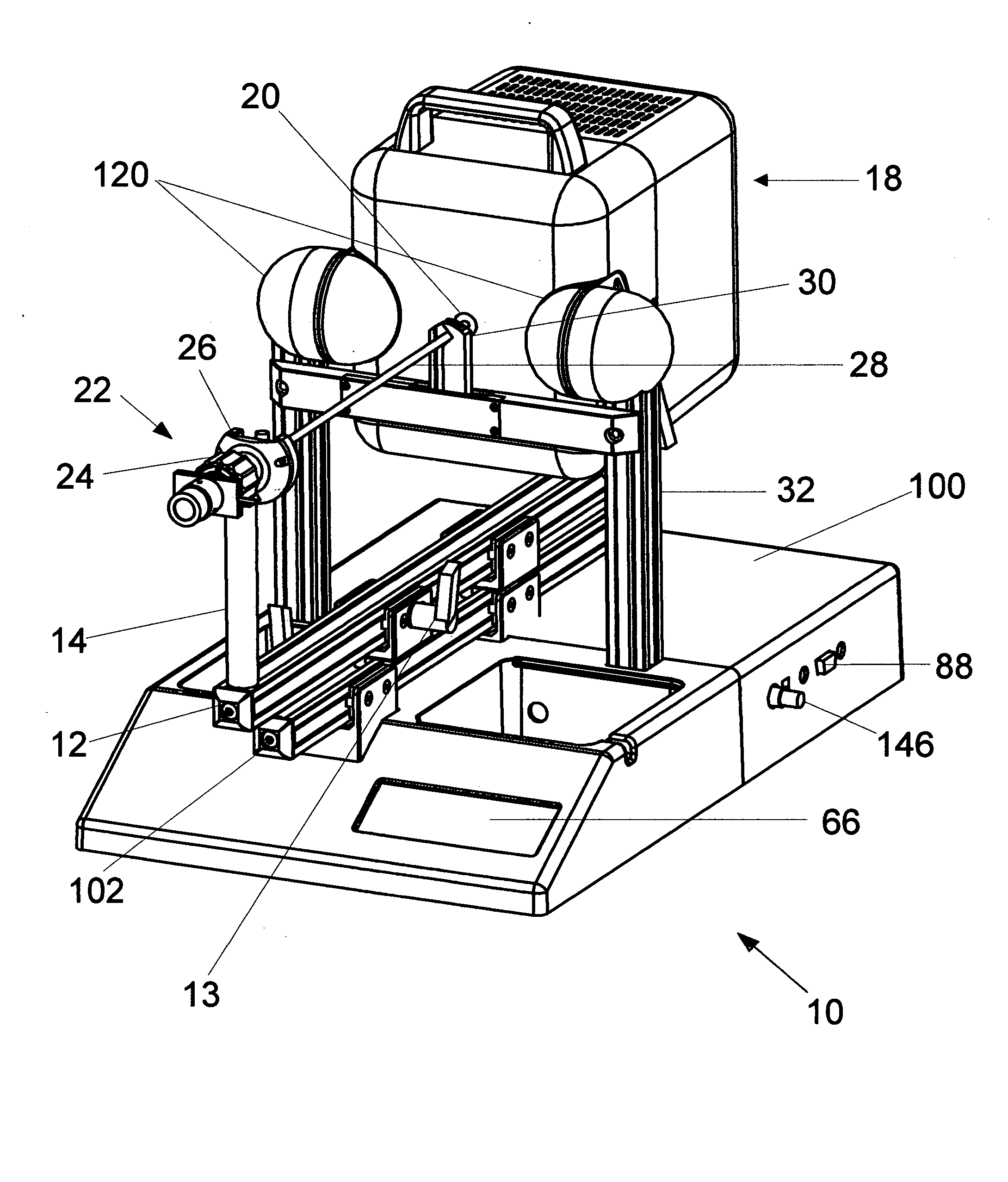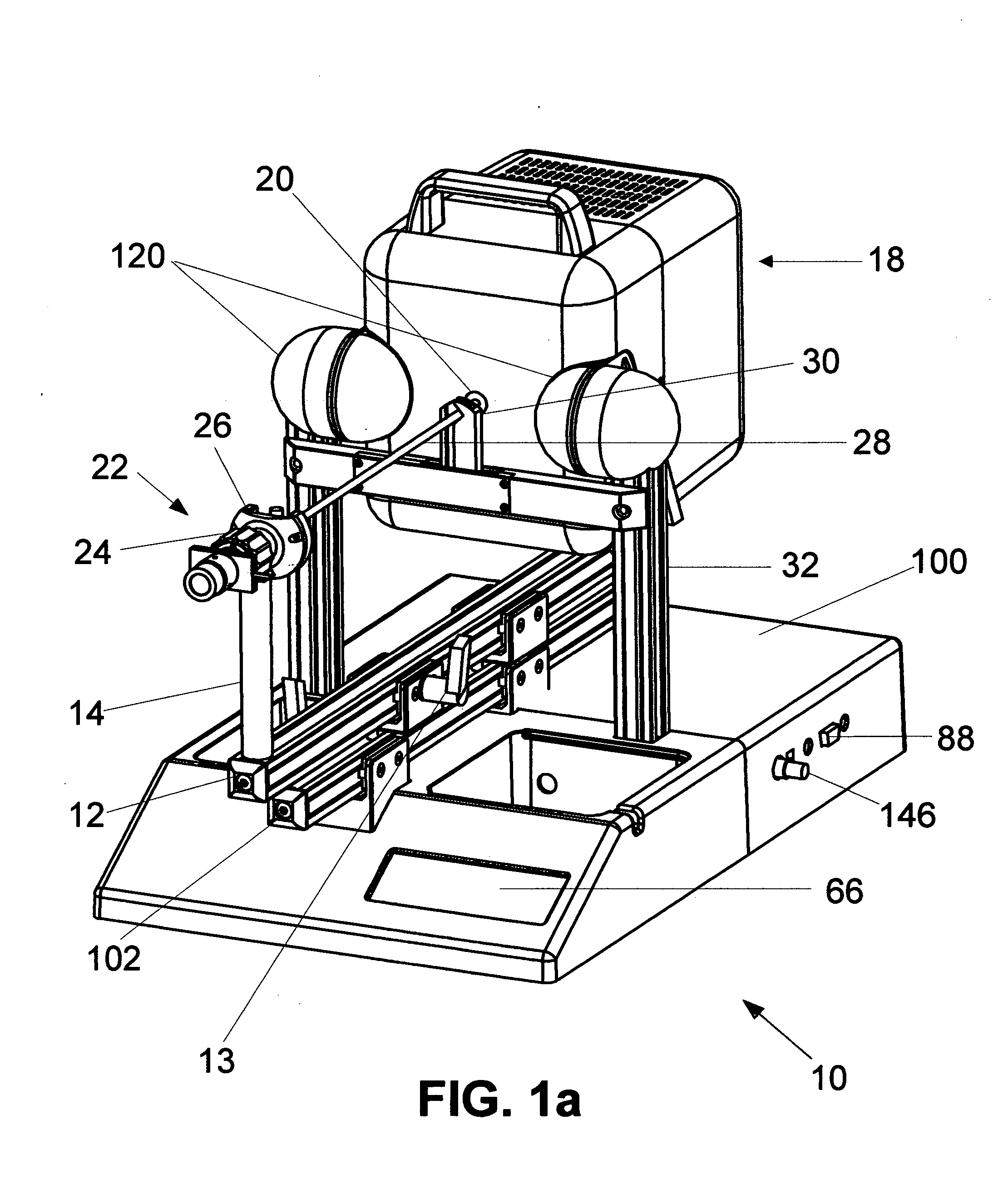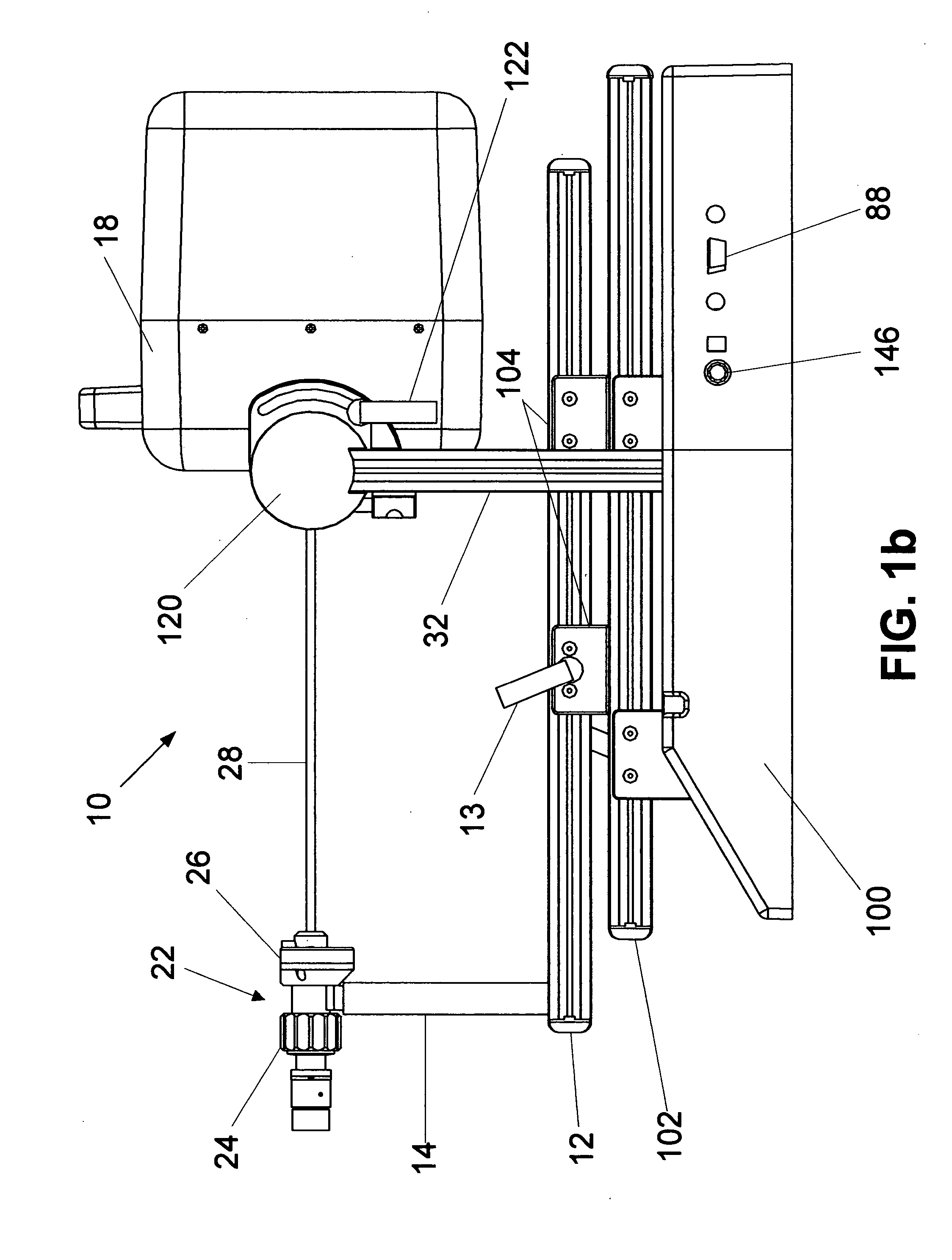Endoscope test device
- Summary
- Abstract
- Description
- Claims
- Application Information
AI Technical Summary
Benefits of technology
Problems solved by technology
Method used
Image
Examples
Embodiment Construction
Reference is now made to FIGS. 1a-1c which show the inventive endoscope test system generally at 10. In a manner to be described, system 10 quantitatively measures the fitness of an endoscope for use in surgical procedures by generating user selectable predetermined test specific patterns on a compact graphical display device. The test patterns are observed through an optical system that magnifies the image between the endoscope and the eye, and the quality of the observed test patterns are scored by the observer and processed by system 10 that calculates a performance figure of merit indicating the endoscope's fitness for clinical use.
The major components of system 10 comprise a longitudinally extending rail 12 on which is mounted a slideable, vertically extending support 14. Above longitudinally extending rail 12 is a fixedly positioned cross frame member 16. Pivotally attached to cross frame member frame 16 is a housing 18 containing various electronics. Referring now to FIG. ...
PUM
 Login to View More
Login to View More Abstract
Description
Claims
Application Information
 Login to View More
Login to View More - R&D
- Intellectual Property
- Life Sciences
- Materials
- Tech Scout
- Unparalleled Data Quality
- Higher Quality Content
- 60% Fewer Hallucinations
Browse by: Latest US Patents, China's latest patents, Technical Efficacy Thesaurus, Application Domain, Technology Topic, Popular Technical Reports.
© 2025 PatSnap. All rights reserved.Legal|Privacy policy|Modern Slavery Act Transparency Statement|Sitemap|About US| Contact US: help@patsnap.com



